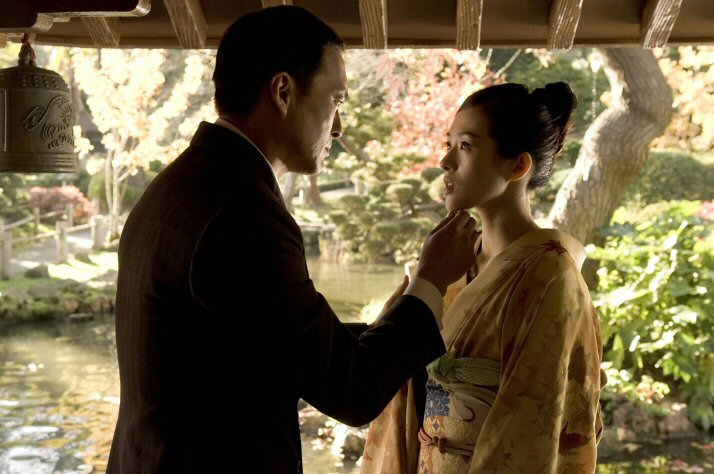
I’ve often written about the struggles of men here on JP. Japan leads the United States and the West when it comes to social problems. This also applies to man’s issues to a good degree. Japanese men have a high rate of suicide and a high rate of men becoming hikikomori. Lately, the US has seen similar trends among men. At the root of the problem sits a sense of despair that comes from lack of purpose. Society no longer needs the traditional male role and definition of manhood as it used to be applied. Traditional manhood is defined as:
- economic provider, where women and children depended upon men.
- protector, where men defended their household and country.
A side effect of these two traits was the idea of a loving but absent father. Japanese gender roles still hold to this definition of manhood, and as a result women are increasingly not marrying. There’s a similar trend in the United States. This isn’t the say these old ideas of manhood are wrong. Rather, they are outdated in application. In 41% of American households, women are the main breadwinners, and this trend rises. The the data I cite in this article can be found in Richard Reeves’s book Of Boys and Men. See the reference section below. In studies of American men, men who aren’t self-defined as providers work less and also have a lower sense of fulfillment. They buy into the traditional application of manhood.
These traditional ideas have some grounding in male psychology. Men need to feel like a provider and like a protector. Data shows men need women more than women need men. Men need women for the mental health benefits women provide. Women typically have larger social circles which married men gain access to. Guys just don’t have many friends anymore, which makes them more dependent upon their wives for this need. Women also have the effect of decreasing male risk-seeking behavior. Single men do dumb and often fatal things whereas a married man have a vested interest in not doing foolish and dangerous things because he has a purpose: his family. These data sets are just generalities, of course.
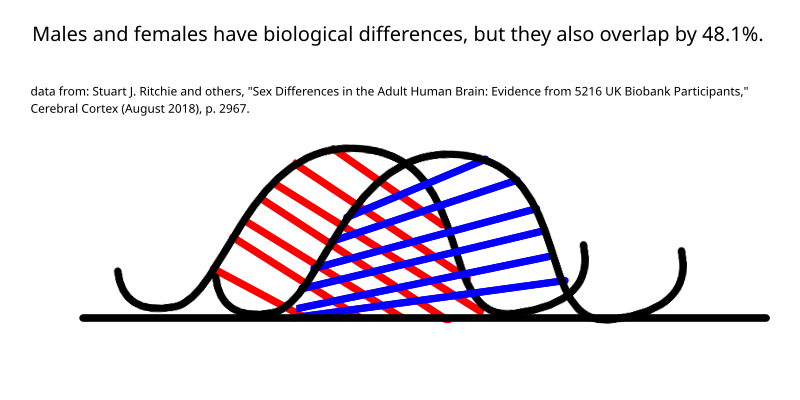
Traditional gender roles of the past were grounded in biology. Men and women have real biological differences which influences their worldview. It’s not a matter of nature vs nurture, however. Rather, it is nature and nurture. While the biological underpinnings are real and have an impact, they aren’t binary as modern (mis)understanding of ancient gender roles makes them out to be. Male and female brains have 48.1% overlap. As Reeves writes:
The typical male has a greater willingness to take risks, for example, than the typical female (especially in adolescence). But some women are more risk-taking than some men. Most studies find the biggest differences are at the tails of these distributions, rather than for the majority of people. A large majority of the most aggressive people are male, but the differences in aggressiveness in the general population are much smaller.
Culture can mute or magnify these biological traits, which was the goal of the ideals of traditional manhood. It funneled male aggressiveness and risk-taking toward behavior that benefited society and men in the past. The problem centers how those old funnels no longer benefit as much has they had. Let me be clear about several things. First, while biology has a role, it isn’t the sole-defining role. Second, the traits of men aren’t toxic of themselves. They can become toxic if culture magnifies them, however. So too can female traits become toxic if culture magnifies them. Third, the male tendencies of provider and protector still have a place in today’s world. The place has just changed.
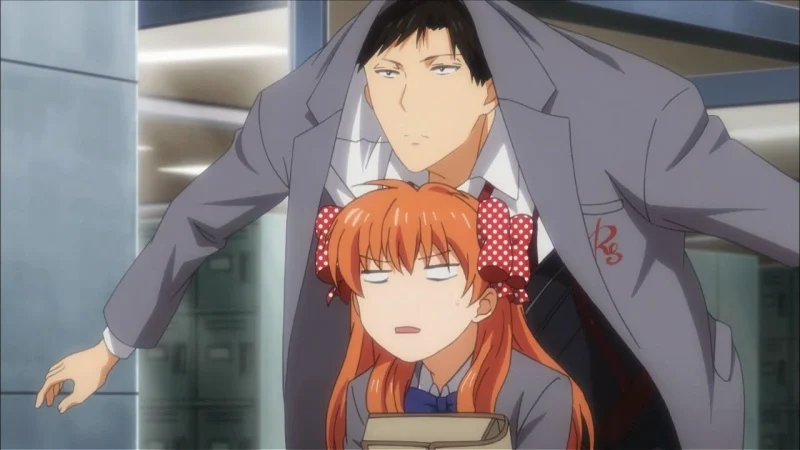
As Reeves points out in his book, manhood’s provider and protector ethos ought to change. First, a man can be a provider of stability and of teaching as a present father. He doesn’t have to be an absent economic provider anymore, so a man can now take on the role of teacher and a provider of tranquility. This, in turn, allows him to protect his family by providing a sanctuary away from the stressors of modern life. Basically, man as nurturer can finally its place earlier in a man’s life. You see, manhood has always had this special nurturer status. It was the elder or grandfather status. Such men could no longer fight or provide economically, but they played a role in teaching, guiding, and providing sanctuary. This critical role now doesn’t have to wait until a man has gray hair. He can provide a restful place for his breadwinner wife (this doesn’t preclude a man from also working), a guiding hand for his children, and an overall more direct approach that the traditional manhood of the past didn’t allow.
So far, I’ve looked at this from a fatherhood standpoint because traditional manhood focused on fatherhood. But manhood also extends to service to others and toward living a life of virtue. Today’s mistaken ideas of manhood often revolve around conquering women sexually and career ambition. This isn’t virtue. When you look at ancient, ideal definitions of manhood you find the ideals of self-control, character, and service. Men who are sexually promiscuous, who are after power and wealth, and otherwise are self-centered where nothing more than children under the ancient Greek, Roman, and even Japanese ideals. Granted, we know few people lived up to these ideas of philosophy. However, the philosophy of manhood provided a sense of purpose today’s men often lack. As Miyamoto Musashi wrote: “Get beyond love and grief; exist for the good of Man.” And as Ueshiba Morihei wrote:
The Art of Peace does not rely on weapons or brute force to succeed; instead, we put ourselves in tune with the universe, maintain peace in our own realms, nurture life, and prevent death and destruction. The true meaning of the term samurai is one who serves and adhere to the power of love.
The ancient definition of manhood, forgotten among all the details, demanded men serve and follow love. Selfishness, violence, promiscuity, ambition, and other mistaken ideas of manhood stand against what a man needs to be. A man who wants to be a true provider and protector for his family doesn’t measure how well he’s doing by the size of his paycheck. He measures it by how present and loving he is for his family. So too a man’s purpose sits at how well he serves others and maintains peace in his own realm–his friends, workplace, partner, and his internal life.
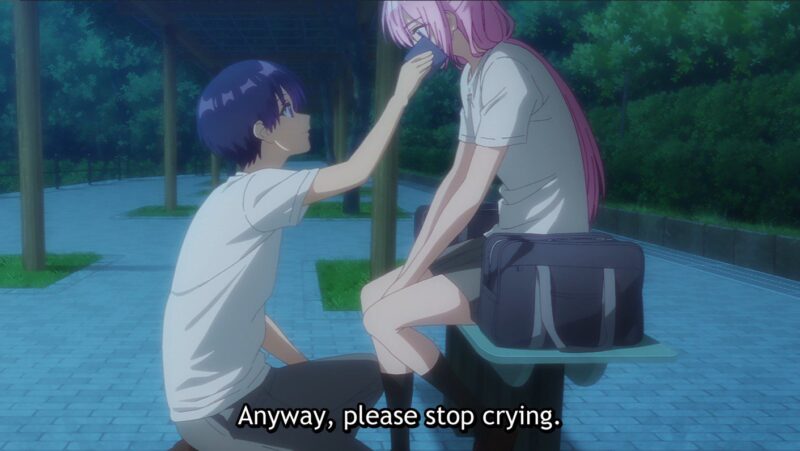
The problem with modern man isn’t with modern women or feminism. Pointing their way merely scapegoats and dodges your responsibility as a man, your responsibility to forge yourself into a blade of service and love. The structure of society, particularly the poor education system, doesn’t help matters. However, this isn’t the sole reason. Men need to look to themselves, their lack of character, and return to the elements of manhood modern culture needs. We still need protectors and providers. The method and focus, however, needs to change. This is especially true of Japanese society, which is more wedded to traditional ideals of manhood than the U.S.. Many young men in Japan are already changing their perspectives. We will have to see how this transition period plays out in male cultures throughout the developed world. This isn’t a zero-sum game. Women’s gains don’t steal from men, nor do changes in manhood steal from women. Likewise, progress in the alternative-gender community doesn’t take from straight men. My opinion, for what’s its worth, is for men to return to the healthy parts of ancient manhood: the focus on virtue, character, self-control, service, and love.
If you want to learn more about the studies surrounding this issue, read Richard Reeves’s book Of Boys and Men.
Reference
Reeves, Richard (2022) Of Boys and Men: Why the Modern Male is Struggling, Why it Matters, and What to Do about it. Washington, DC: Brookings Institute Press.
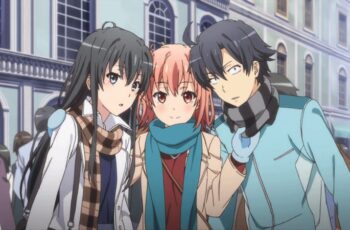
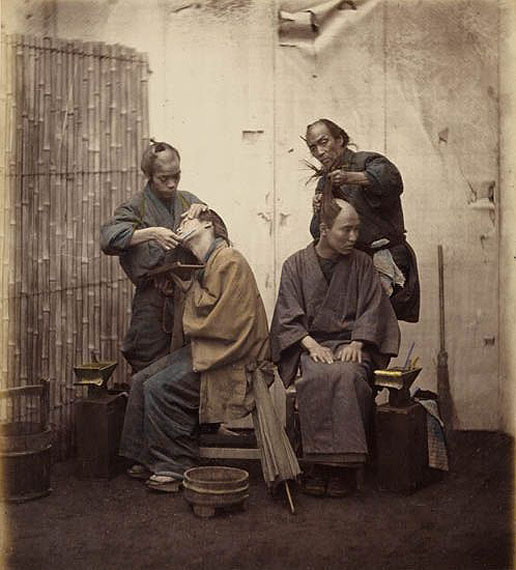

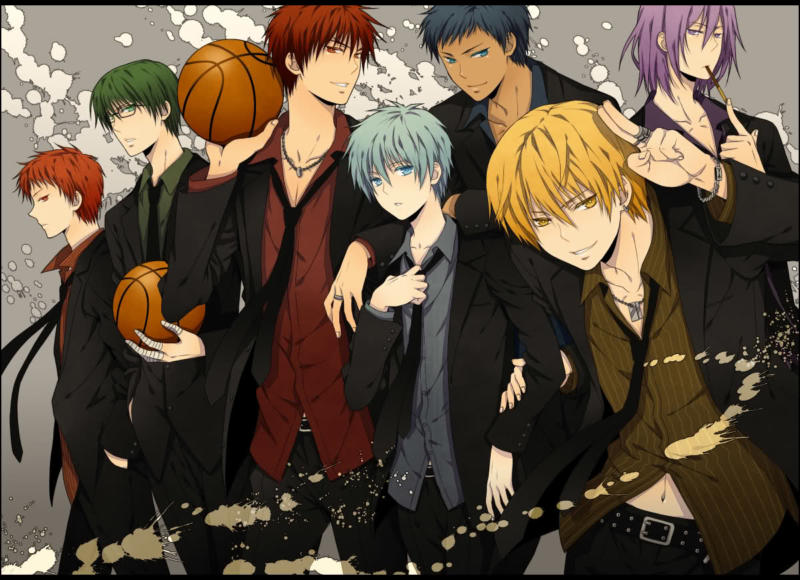
I’m always a little skeptical with the conclusions of these kinds of books; there’s usually a bit of an agenda. That said, the idea that neither “nature” nor “nurture” can be ignored is at least an honest (if not obvious) encouragement. Way back in my early pre-med days, the physiological psych textbooks already well documented the physical differences in “masculinized” and “feminized” brain regions, the relationships to genetics and prenatal hormonal exposures during different trimesters, and their associations with gender identities, sexual preferences, and responses to hormones such as testosterone. I wish I’d hung on to those textbooks. That actual science gives way to the various drifts of social pressures is sometimes discouraging.
Healthy, modern societies certainly have to respect individual rights, freedoms and merits. But we ignore nature’s discompassionate approach to the genetic selection of overall social behaviors at our own peril. That youth, appearance, strength, skill, and physical prowess are instinctively valued by most of both sexes shouldn’t be a surprise in a species that evolved over millions of years in an environment that constantly tested all of those characteristics. These may be frustrating aspects of being “human”, but they are still significant influences in our innate desires for both self-satisfaction and self-determination. So I’m not so sure that replacing some socially incompatible “male” drive will be so simple as a shift to more nurture.
I am cautious about such books too. Reeves’s book was surprisingly middle-of-the-road. I glossed over it, but a good bit of the book focused on how the education system doesn’t channel innate male tendencies toward learning. The book discussed how biological traits are too often ignored or not channeled toward helpful ends. A good bit of the ancient philosophy I read deals with directing male nature toward virtuous ends. Do you think perhaps we mistake direction for suppression?
I agree that science kowtowing to social pressures is a problem. People become uncomfortable about biological and the complex overlay of nurture and nature. As much as some don’t want to admit it, some biological aspects of humanity are immutable.
Going back to my years surfing at the local beach in the town where I grew up, it didn’t take long to recognize that it was as much a social proving ground as recreation for the boys. And frankly, I understand the attraction of “competency”. Deny males access to socially acceptable sorting practices, and I think that’s when you’ll see many young men physically pushing on the social boundaries.
As for the redirection, I think it will be essential at some point. I’m just not sure how it can be done in the relative chaos of American society. Singapore has made some sincere efforts at trying to redirect its reservoir of young male angst. Regardless, the country still suffers an appalling suicide rate among its 14 to 29 year-old males. Finding meaning in life isn’t so easy, especially when we’re denied the distractions afforded by our hormones.
Feel bored, I wrote something irreverent on the topic about a year back. Search: “Last Gasps of Excitement”.
The ages of male suicides seems to point toward differing problems in manhood, or perhaps to shifts. In the US, middle-aged men have the highest suicide rates. Why do you think this differs among cultures and age groups?
That’s a good question. Between Singapore and the US, I think there are a number of reasons… drugs, crime, health, social safety-nets, cultural norms, family structure… But fundamentally, Singapore is an “Asian tiger” society. Orderly and safe, successfully finding a place in which to fit is an intellectual task that peaks in high school and uni, and there aren’t so many non-academic ways for struggling male youth to demonstrate competence. Conversely, the US is a consumer society (often as defined by Thorstein Veblen’s “conspicuous consumption”). So loss of masculine identity is associated with an inability to provide financially, something that’s more likely to be a later-life issue.
It’s interesting how the problems reduce to seeking validation in externalities instead of seeking inner validation from oneself. Philosophy has long spoken against seeking outside validation.
Chris, this can’t be real… what timing.
I wouldn’t ever guess I would get to read something like this just after I recovered from a major funk that even caused me to escape my home for a few hours.
I got affected by a sentence that my close friend sent me in a chat, which caused more things to pile up day after day, in the end, I spent more than 10 days in deep sadness, hurting chest, and loneliness and longing to have someone to give love to, with somewhat specific traits due to my standards of quietness and gentleness. I’m normally a quite mentally strong person when it comes to roles and what society expects people to be like – I simply didn’t care much. I’m a person who lives for programming and art and I personally have no desires to be a major breadwinner, although I want to help people and make opportunities happen once I grow stronger and even more experienced.
In the end, the funk wasn’t caused by my mental weakness, but because I’d been forgetting to take my antipsychotic medication, which only worsened as soon as the funk started, dragging me deeper into sadness. After a lot of drama happened, my only available real life friend told me his experiences with medication, and he made me find out that all of it happened because of not taking medication indeed, and wasn’t caused by me being “weak”. But your article still has immense value for me, because I know that I’m hardly alone in even slightest moment of doubt about roles. I’m fortunately happy with who I am, and I rather enjoy giving my (platonic) love to other people. Sorry if I didn’t carry over much from your article because I’m typing this with too much excitement right now, haha.
I was somewhat in denial about roles changing, but at another point, it does make sense that old ways cannot stay with us forever, even if they carry their bliss and memories but also some inequalities and problems, change is inevitable. Whether the changes are good or bad, I myself cannot state an opinion about it, because I myself am somewhat confused (but not really in despair), but with your article, I gather some sense of “direction” now. Thank you. I feel more at peace because of your article.
Best,
Charles.
I’m glad you found the article helpful!
The changes male roles need to take aren’t drastic. Rather, they are a return to even older roles men had but had lost over time: the roles of the nurturing man and of pursuing your life’s calling. By pursuing that calling, you serve others.
Let me quote Marcus Aurelius’s thoughts on change:
Hey Charles!
I just wanted to say that there’s certainly no weakness in the admission that we’re the products of nature. If a doctor prescribed that medication, it was in recognition that you are indeed a real human being. “Loneliness” is also among the normal, human drives. We all long for “place” in the order of things; but that means there are always going to be times of searching. Don’t be afraid to be your own best friend and take care of yourself in those moments. But don’t forget to also keep looking outward. You may have no idea how just a small action toward another may change everything. For me, it was simply someone asking, “How are you doing?”
Sincere good wishes to you!
K.